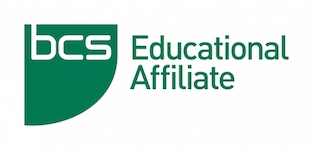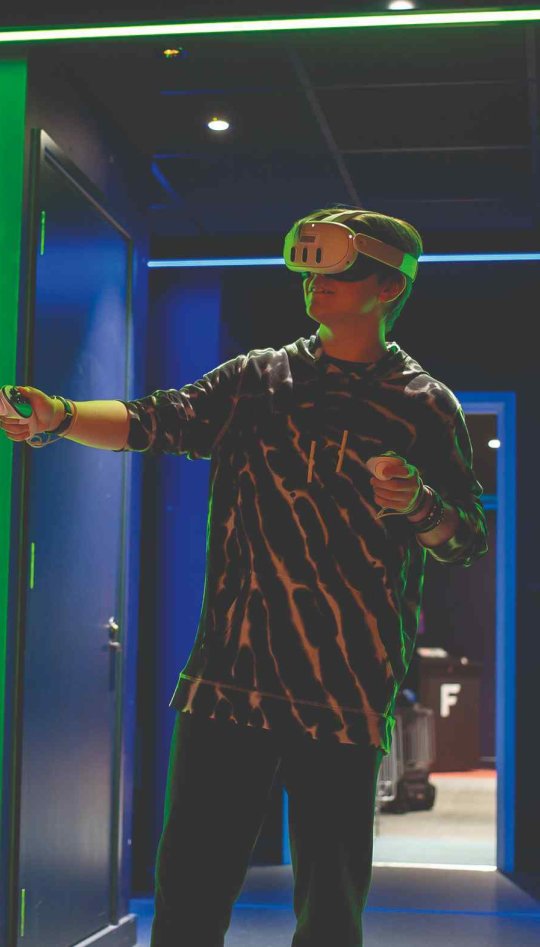
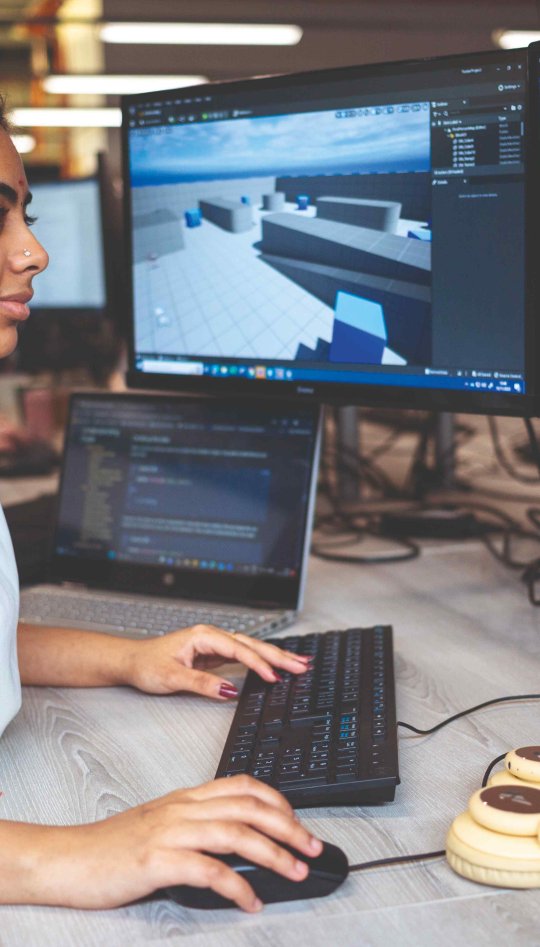
Computing for Games BSc(Hons)
Launch your programming and software development career.
Course overview
This course will be renamed to BSc(Hons) Computer Games Programming for all new students from September 2027.
A fusion of creativity and science, this Computing for Games course will give you the skills and experiences to launch a programming and software development career within the rapidly growing games industry, and beyond.
Supported by experts in game programming, immersive technology, artificial intelligence and data science, you’ll gain an in-depth understanding of the technologies that power games and learn to push the boundaries of existing software and engines.
You’ll also learn to collaborate and communicate effectively as you lead the development of real-time interactive systems within multi-skilled game development teams.
Why study this course at Falmouth?
- You’ll make real games in collaboration with artists, animators, composers, designers, writers and other programmers, working within an industry-style studio environment
- This course is accredited by the British Computer Society (BCS), aligned with the SFIA global IT skills framework, allowing you to plan your progression and translate your competencies to global companies operating all over the world
- We’re ranked as the number one university for game design in England (Princeton Review, 2025)
- You’ll get under the hood of video game engines like Unity and Unreal, learning a range of programming languages like C#, Python and C++
From September 2027, this course will be renamed to BSc(Hons) Computer Games Programming. All new first year students enrolling on the course from September 2027 onward will join the course with the new name. All existing students enrolled before September 2027 will retain the previous course title, BSc(Hons) Computing for Games, throughout their studies.
Course details
On this Computing for Games BSc degree, you’ll study key computing principles and related mathematical concepts, learning how to apply these to your own technical work. You'll concentrate on programming in multiple languages, including C#, Python, and C++, as well as software engineering methods, agile project management, and versioning techniques. By studying industry-standard methods, and focusing on collaboration, creativity and enterprise, you'll learn how to build and sell original games.
Course study options
You can gain your Computing for Games BSc(Hons) degree in three years or choose to add an Integrated Foundation Year and/or professional placement year. Discover full course details for each study option, below.
Levelling the playing field
All the courses in the computing subject area share a common first year. No matter your background or experience, in this year you’ll level-up your knowledge of programming and mathematics through playful experimentation in collaboration with other students.
Beginning with an introduction to programming, you’ll learn the basics of computing using modern programming languages. We’ll support complete beginners as we go through the various stages of software development, helping you apply what you’ve learned to a small team-based exercise.
You’ll then embark on your first multi-disciplinary teamwork project alongside artists, animators, composers, designers, and writers. This project gives you a practical understanding of software engineering processes and architecture – typically using C# in Unity.
Throughout the year, you'll work individual creative computing projects into your games. These projects typically involve procedural content generation and physical computing, reflecting our research strengths.
Modules
Principles of Computing
In this module, you’ll learn the principles of computing, discrete mathematics, statistics and technical communication. Through a series of tasks, you’ll begin to use core computer science concepts, techniques and methods to solve practical problems and leverage algorithms in your solutions.
You'll also delve into the history of computing, engaging with the plurality of voices in the profession and the controversies evoked by algorithmic bias.
Digital Creativity
On this module, you will explore digital media formats including text, image and sound.
You’ll play, tinker, experiment with and extend digital artefacts, transforming what already exists in one form into another form as a means of appropriation. You will then integrate your digital artefacts with digital game technologies, notably game engines, to make them interactive in some way.
You’ll also consider moral and legal questions surrounding digital creativity, such as plagiarism, intellectual property law, licensing rights, representation and media literacy.
Development Foundations
On this module, you’ll gain foundational experience of the basic principles, terminology, roles and tools used in the development of digital products and services.
Through several small-scale team projects, you’ll practice a range of prototyping methods and pitch your idea for a future project. These projects will help you to develop your project management skills, while building a professional, inclusive and supportive studio culture.
Data Fundamentals
In this module, you’ll learn the fundamentals of the data science life cycle. This will include learning how to formulate questions, collect and clean data, explore and visualise data, make statistical inferences and predictions, and report insights in a way that informs decision making.
You'll also gain an awareness of the responsibilities, obligations and legalities of working with sensitive and personal data, including its collection, storage, analysis, management and transmission.
Individual Programming Project
In this module, you’ll refine your approach to computer programming by developing an architecturally sound project focused on object-orientated solutions.
Through this project, you’ll build your confidence with various interfaces that enable interaction within and across different system components. You’ll practice more disciplined software engineering methodologies, develop your mastery of the notations for describing and refactoring system architectures, and apply the mathematics associated with circuit design.
You’ll also gain a greater awareness of ethical considerations such as safety, accessibility, sustainability and the impact of supply chains.
Multidisciplinary Teamwork
On this module, you’ll work in multi-skilled teams to make a digital product or service in response to a prompt or brief.
This work will give you the opportunity to increase your knowledge of organising and managing a software development project. Working in a multidisciplinary team will also give you hands-on experience of the full systems development life cycle and production pipelines in an ‘agile’ context commonly used in professional practice.
By the end of the module, you and your team should have produced and evaluated a modest but functional proof of concept.
You’ll focus on developing your specialism in computing for games and collaborate with students from across the Games Academy to design and build a product.
You’ll explore key principles in computational mathematics, as well as delving into more complicated game development concepts in advanced game programming and artificial intelligence.
Modules
Advanced Game Programming
On this module, you’ll learn more about the different areas of game programming through the process of producing a game from scratch.
Through this, you’ll deepen your knowledge and understanding of languages and framework fundamentals as well as game engine architecture.
You’ll also touch on artificial intelligence (AI) and will be challenged to incorporate it into your game or your game development process. Through this, you’ll consider how AI might impact society in the future.
Computational Mathematics
You’ll learn key mathematic principles that underpin computing, such as linear algebra, geometry, trigonometry, 3D transformation, and calculus. You’ll then apply these principles to your own technical work.
You’ll also investigate the relationship between computational mathematics and cybersecurity. By exploring security topics such as common threats and attack vectors, cryptography and steganography, certification and malware, as well as defensive programming.
World Building: Pre-production
Working in a multi-skilled team, you’ll devise a concept for a digital ‘world creation’ project. You’ll also develop a broader understanding of key game art principles, including world-building and exploratory concept work, prototyping, pre-production, and the early phases of production.
World Building: Production
Working in a multi-skilled team, you’ll continue to develop your ‘world creation’ project that you started during the previous study block.
You'll deliver content in line with production milestones and prepare to release your product and reach your target audience.
Artificial Intelligence and Machine Learning
In this module, you’ll explore the challenges and opportunities of artificial intelligence and machine learning techniques. Considering real-world applications, you’ll conduct a practical research and development project looking to address a specific brief or challenge.
Through this work, you’ll get a chance to think about the legal, social, ethical, professional and sustainability implications of AI technologies. You’ll also examine how artificial intelligence and machine learning may impact computer technology and your future career aspirations.
You can choose to take an optional professional placement after your second year on a three-year programme, or after your third year if you’re studying for a degree with an Integrated Foundation Year.
You’ll be responsible for finding your own placement, with support from the employability team.
Choosing this option will enhance your industry experience and skills while studying.
How you’ll study during your professional placement
You’ll spend time working in a professional context, as part of a business or organisation. This can be in one role, or up to three, and must be for a minimum of 24 weeks.
You’ll develop in-demand workplace skills, deepen your insight into industry and grow your network of contacts, all of which could help you get ahead in your career after graduation.
Throughout this year, you’ll develop a portfolio of work that includes critical self-reflection on what has been learned from the experience. You’ll be required to evidence your experiences, the skills you’ve learned and your professional growth.
In your third year, you’ll develop greater intellectual freedom and further your specialism in computing for games. You’ll then harness these skills to conduct your own individual research and development project under the supervision of a subject-matter specialist. This will provide you with the space to realise a substantial computing artefact of your own and apply scientific research methods to find cutting-edge insights into a topic of your choice.
Complementing this is a major collaboration, in which you’ll work in multi-skilled teams to produce an innovative digital product or service based on your own intellectual property.
Modules
Graphics & Simulation
In this module, you’ll deepen your understanding of computing and explore how application protocol interfaces (APIs) are used for graphics and simulations that underpin digital game engines.
You also develop your coding skills in the context of graphic technologies and pipelines, gaining an understanding of how simulated virtual environments operate.
Research & Development: Proposal
In this module, you’ll plan and commence an individual ‘major’ research and development project in computing. You can choose to conduct primary research centred on or supported by a novel computing artefact, or practice-based research with significant technical depth.
The development of your written proposal will include identifying an opportunity, critically reviewing relevant literature, setting a hypothesis and designing a mode of data collection, while considering all ethical implications, as well as prototyping a novel and substantial computing artefact.
Future Skills
Focusing on employability, you’ll develop a commercial awareness and entrepreneurial mindset.
You’ll explore career options, including researching the skills required to set up your own business, establish yourself as a freelancer, or for use as an employee in a business or organisation.
You'll also devise a group project around enterprise opportunities. Practical learning will be consolidated through critical reflection as you develop the ability to translate skills for an external challenge-led context.
Research & Development: Dissertation
On this module, you’ll continue your individual ‘major’ research and development project. Building upon the proposal you submitted, you’ll further develop your prototype computing artefact into a potentially deployable solution. In doing so, you’ll deepen your knowledge of software engineering, the use of advanced research tools, technical writing and academic conventions, as well as the interpretation and visualisation of results from statistical analyses of quantitative data.
Under the supervision of a subject-matter expert, you will: realise a novel and substantial computing artefact; execute your research and development; and critically analyse your results, disseminating your findings through a written academic dissertation. You’ll also present your insights to peers alongside a demonstration of the final computing artefact, referring to the potential impact of your project, any ethical concerns, and potential future work.
Major Collaboration
In this module, you’ll leverage your experiences from the prior stages of the course to deliver a substantial collaborative project. You’ll work in a multi-skilled team to design and implement a potentially innovative product or service.
Typically, this will be the continuation of your previous project, but it could also be a newly proposed project that satisfies a real need, a response to a market opportunity identified by the University, a live brief from or collaboration with industry partners or research teams, or a solution to a problem presented by an external stakeholder.
You will continue to put into practice the ethically-informed methodologies you have outlined in previous modules. Contexts can also vary but could include: enterprise solutions; mobile apps; installations; games; web applications; robots; immersive experiences; software development tools; and more.
Why study an Integrated Foundation Year route?
If you’re taking on a new subject that you haven’t studied in depth before, have been out of education for a while or have a non-standard educational background then an Integrated Foundation Year degree may be the right choice for you. It is a four-year degree with an Integrated Foundation Year to start, which allows you to explore the primary elements of your subject before progressing on to the remaining three years of the BSc(Hons) degree.
What you'll study in your Foundation year
If you choose this pathway, you'll study five core modules in your Foundation year. These are all designed to help you explore the foundational elements of your subject. You'll gain relevant technical skills, learn to experiment and take risks, develop an understanding of professional practice, have opportunities to work across disciplines and collaborate with other students on live project briefs.
Modules
Explore
You'll begin your foundation year by working collaboratively with others to explore themes of the future. You'll take risks, experiment through play and be supported to break through barriers.
Technique
You'll take subject-specific workshops and develop essential technical and practical skills in your area of study. You'll also enhance your analytical and organisational abilities.
Apply
You'll work with your peer group to think beyond discipline by addressing a societal or global issue. You'll then showcase your work to your peers and deliver and accompanying evaluation of your process.
Industry
You'll enhance your creative and practical skills in your subject specialism by responding to typical industry briefs, underpinned by focused research and experiments. You'll also gain industry insights through guest lectures and workshops.
Launch
You'll develop your unique identity in your specialism through the production of a self-initiated body of work. Your final project will be the bridge to your next year, fully supported by evaluative reviews and critical analysis of the work you have created.
After the Foundation year, you progress into Year One of the full three-year degree, equipped with a deeper knowledge of your subject, a clear understanding of your strengths, and develop a practical and technical skillset and the confidence to excel in your chosen subject.
If you apply for and enrol onto a degree with an Integrated Foundation Year, you’ll have the option to switch onto a five-year version including a placement year. That means you’ll complete the first three years of your course before completing a placement in industry in your fourth year and returning to Falmouth for the fifth year of your programme.
We regularly review course and module content to ensure our students receive a high-quality and rewarding academic experience. As such, there may be changes made to the curriculum which are not immediately reflected in the content displayed on our website. Optional modules may be updated to maintain the best experience. Any students or applicants affected will be informed of approved changes directly.
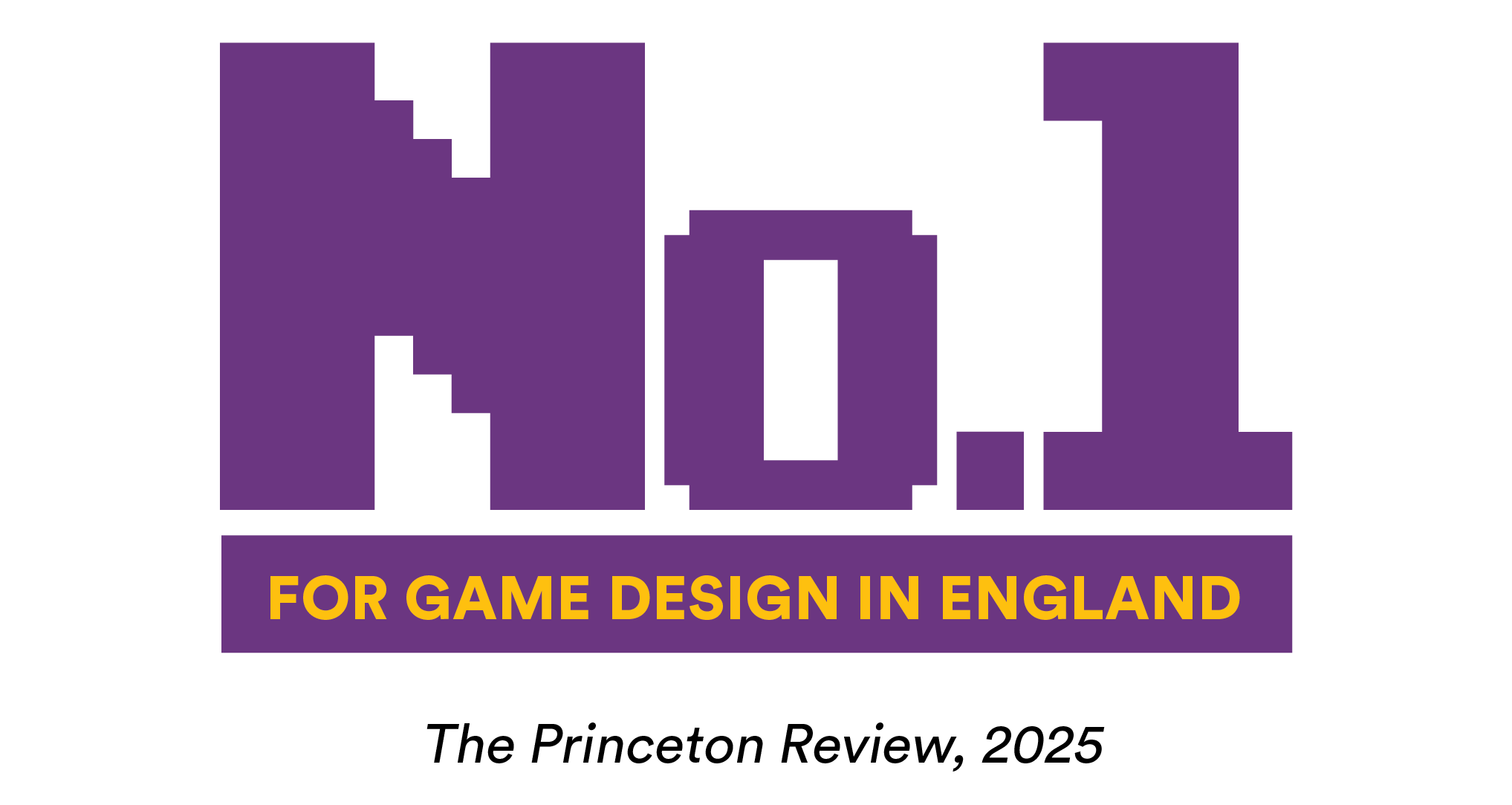
Accredited by the British Computer Society (BCS)
This Computing for Games BSc(Hons) is accredited by the BCS and aligned with the SFIA global IT skills framework, allowing you to progress and translate your competencies to companies operating all over the world.
Additionally, the Games Academy is an affiliate of the British Computer Society (BCS), the Chartered Institute for IT. This means our computing qualifications are continually reviewed and updated to meet the needs and demands of the future workforce.
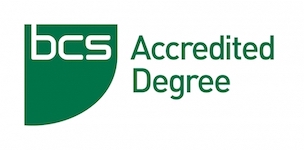
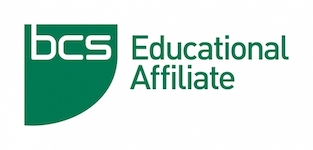
Stories from our community
Explore student projects, graduate successes, staff news and industry insights

Resident Evil 9 and the return of playable fear: Why horror games matter more than ever
27 February 2026
This article was written by Dr Eoin Murray, BA(Hons) Creative Writing lecturer and organiser of Falm...

Game Development graduate on making retro games and his YouTube following
29 January 2026
From building minigames in LittleBigPlanet as a teenager to releasing homebrew (unofficial hobbyist)...

Why I returned to study an Indie Game Development master’s while teaching
27 January 2026
After years working across games and education, Jess Bradshaw chose to return to study with a clear ...

Game Art graduate reaches finals in international team challenges
20 January 2026
BA(Hons) Game Art and MA Game Art graduate Eden Gates has reached the finals of two team-based game ...
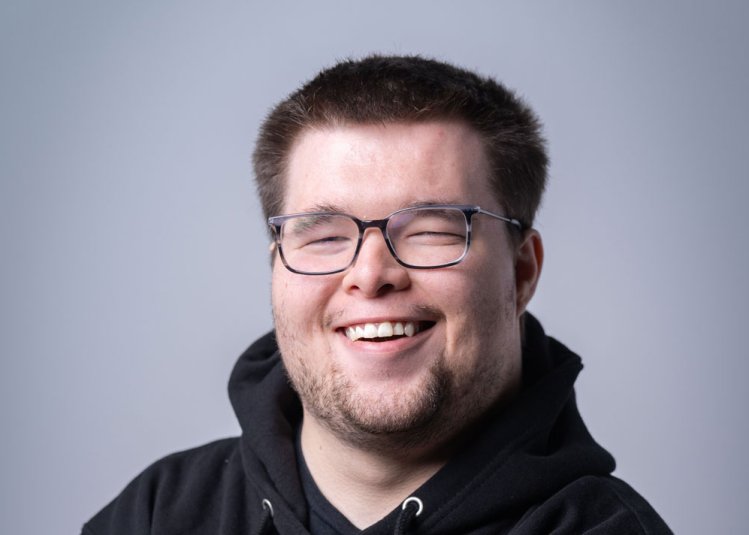
Game Development Writing graduate builds career in community management
25 November 2025
For Liam Gregory, studying Game Development: Writing BA(Hons) at Falmouth opened the door to far mor...
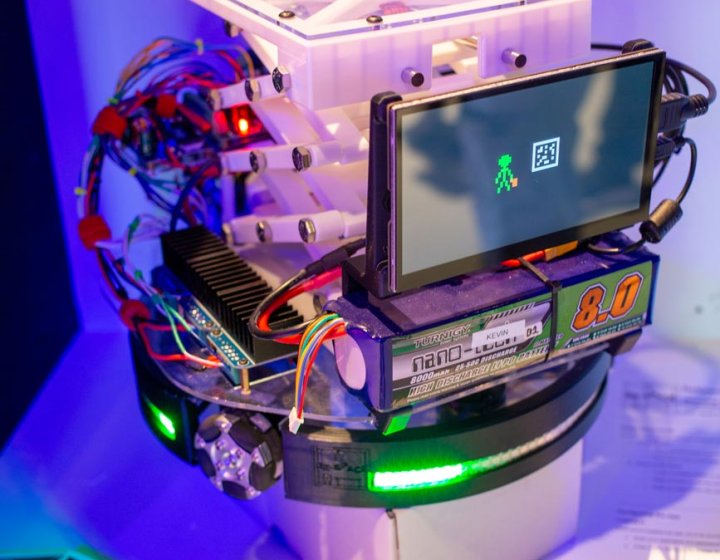
What is Creative Computing?
24 November 2025
Senior Lecturer in Computing, Matt Watkins explores what creative computing is and how it’s transf...
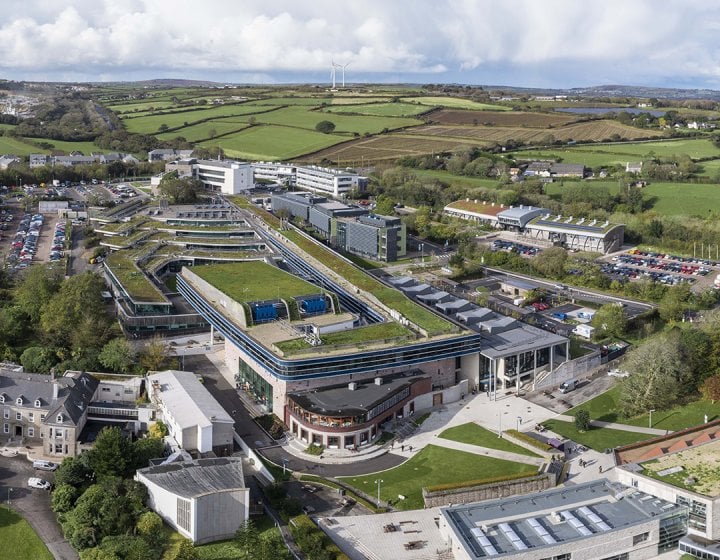
Falmouth University awarded £1.4m to power the future of creative design and manufacturing
18 November 2025
New state of the art design and advanced manufacturing facilities for students at Falmouth Universit...
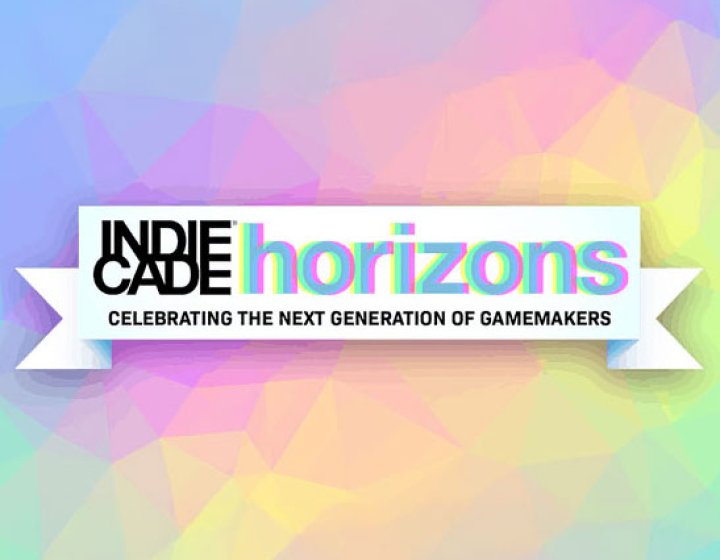
Dr William Huber honoured with Horizons Faculty of Excellence Award
11 November 2025
Falmouth University’s Associate Professor of Game Studies, Dr William Huber, has received internat...
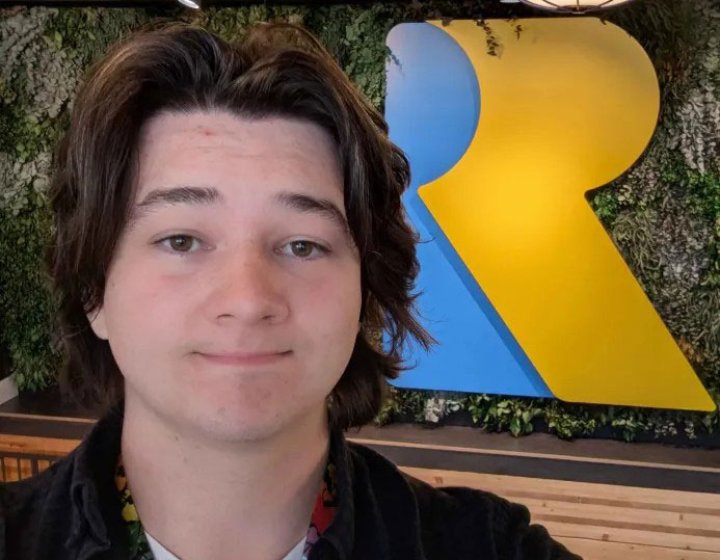
Game Animation student on joining renowned games studio
06 November 2025
Since graduating from Game Animation BA(Hons) at Falmouth, Brendon Chadwick has landed a dream start...
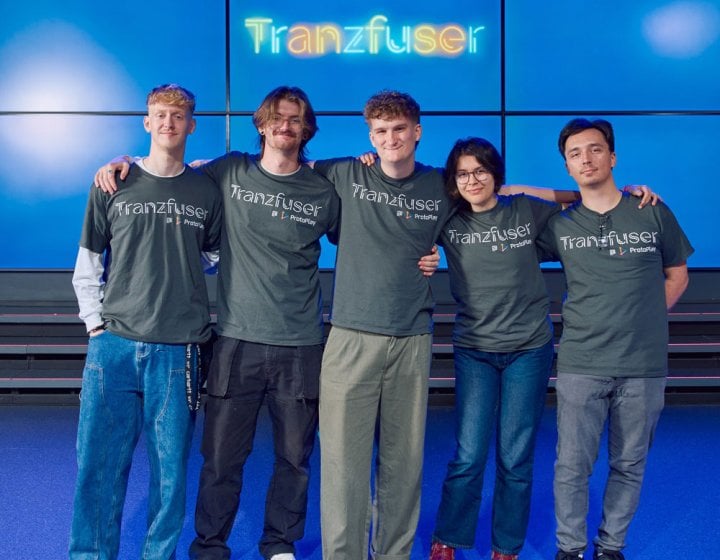
Games Academy graduates win national Tranzfuser competition
04 November 2025
Studio Whalefall, a team of Falmouth Games Academy graduates, is celebrating success after winning T...
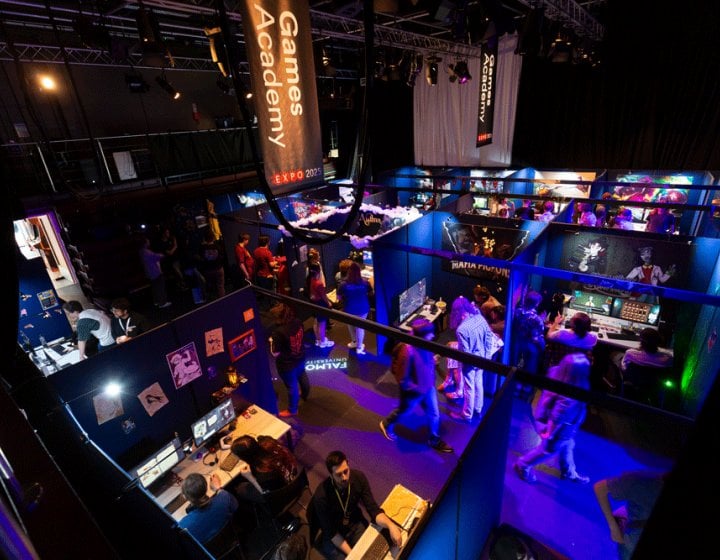
A catalyst for creativity and innovation: a decade of Falmouth University's Games Academy
21 October 2025
When Falmouth University launched its Games Academy in 2015, it did so with a bold premise: that gam...
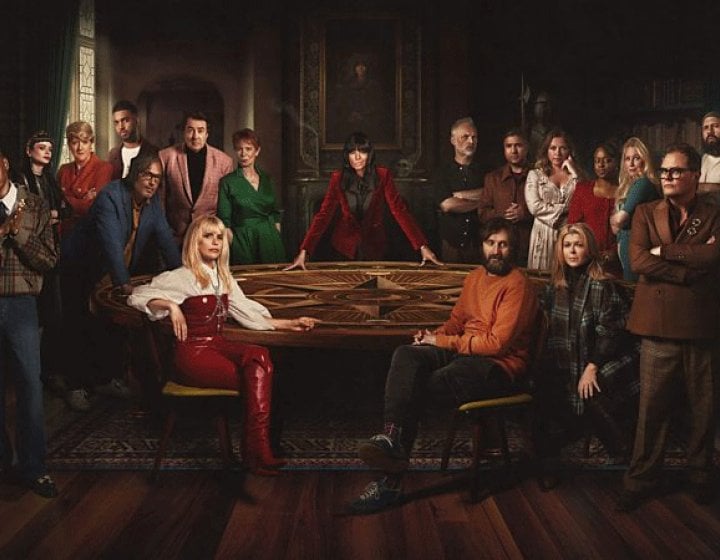
Playing the Game: What Celebrity Traitors reveals about strategy, authenticity and the self
16 October 2025
When The Traitors first appeared on television, few could have imagined that a game once played in t...
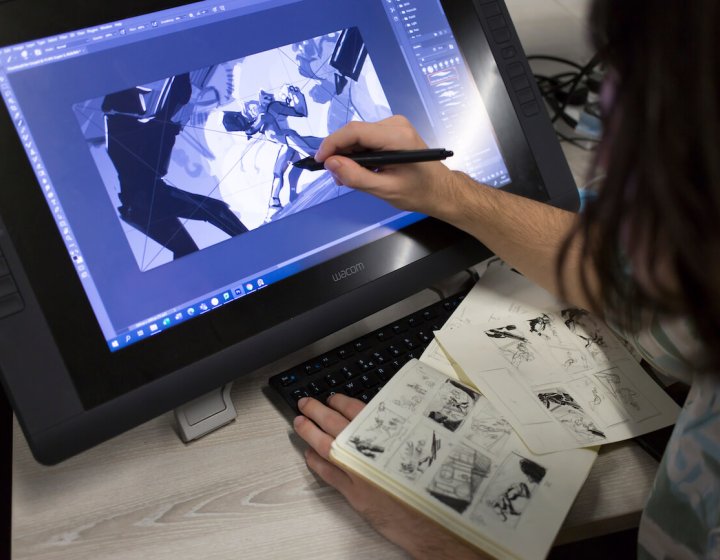
The difference between studying Game Art and Game Development: Art
15 October 2025
With two Game Art undergraduate degrees within the Games Academy, you might need a hand picking betw...
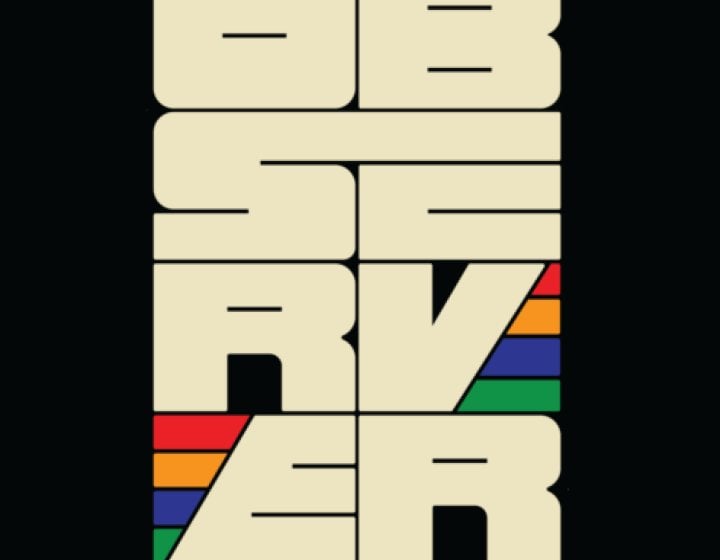
Lecturer’s game studio wins national award for championing games education
07 October 2025
Observer Interactive, the independent studio co-founded by Matty McGrory, Senior Lecturer in Indie G...
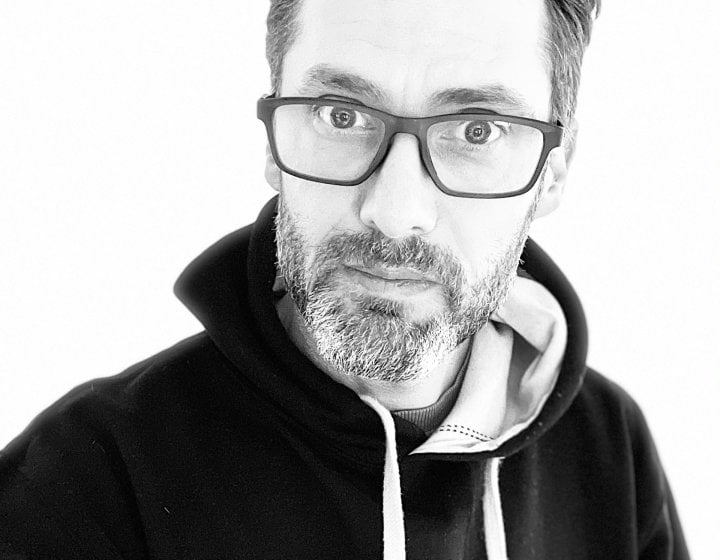
How a passion for cars led to a career in games and teaching Game Art
03 October 2025
Lee Walton’s route into games was anything but typical, moving from car design into roles at leadi...
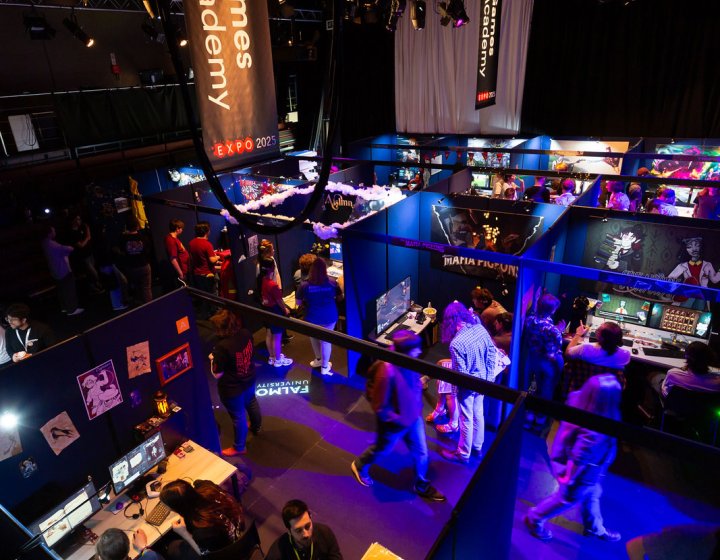
Forging Futures: How Falmouth University’s Games Academy became a catalyst for creativity and innovation
02 October 2025
When Falmouth University launched its Games Academy in 2015, it did so with a bold premise: that gam...
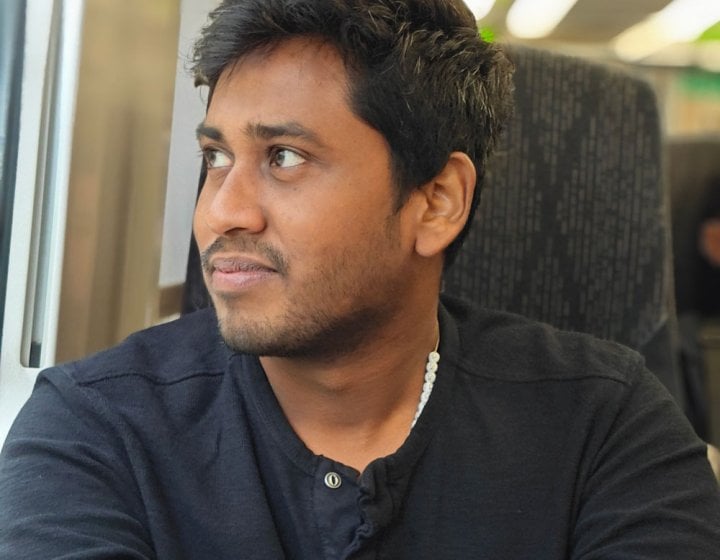
An international student’s journey on Falmouth’s MA Game Art
25 September 2025
For Anosh Saji, choosing to study a master’s in Game Art at Falmouth was about more than gaining s...
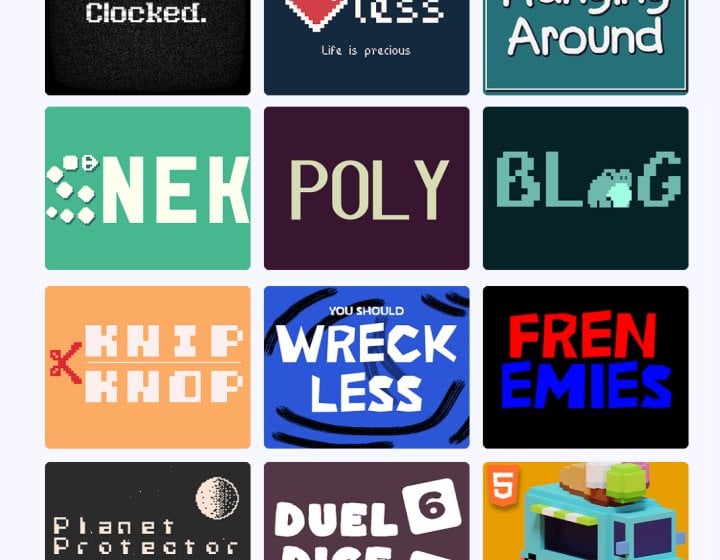
Indie Games Online student completes 12 games in 12 weeks project
23 September 2025
For his final major project on the Indie Game Development MA (Online), Mathijs Koning set himself a ...
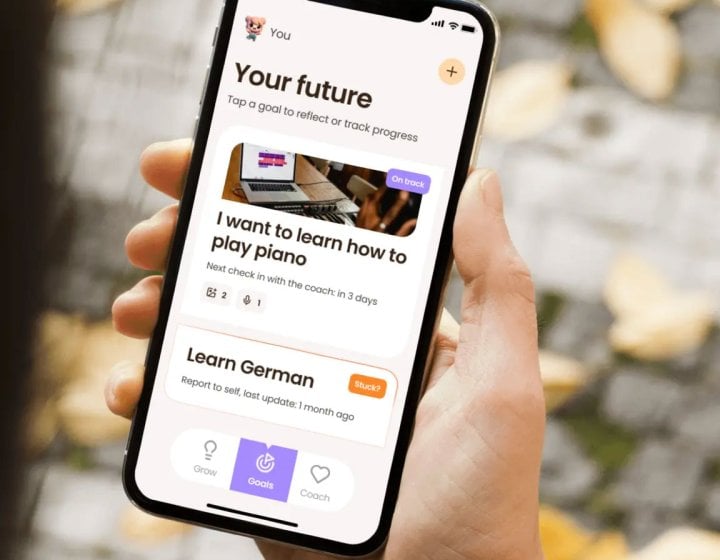
User Experience graduate on exploring scent, further study and starting a business
18 September 2025
When we think about digital design, we tend to think of screens, buttons and code. For User Experien...
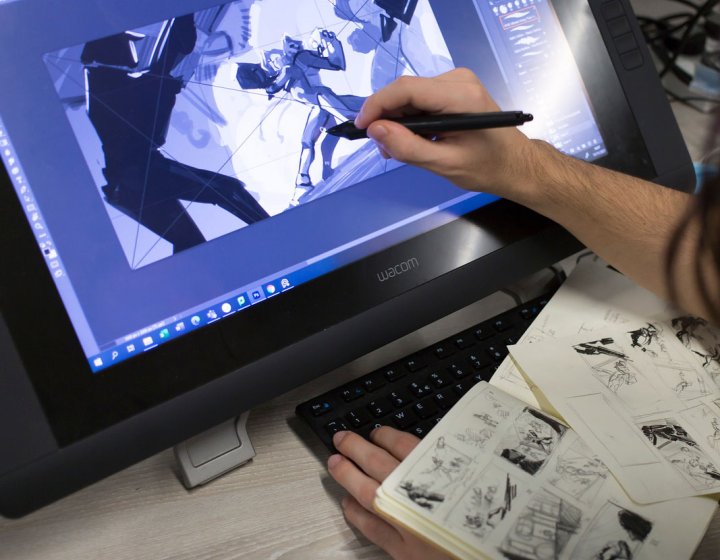
Game Art lecturer on character creation and collaboration
16 September 2025
We chatted with senior lecturer in Game Art, Michael Boylan, on how games are almost never made in i...
How you'll learn & be assessed
You will learn in an environment mirroring the industry, with technical workshops and tuition boosted by collaborative, studio-based projects. Individual and group projects with students from other disciplines will be key to your development. You'll create software, devise new applications for computing, generate solutions to technical problems, and develop novel and appealing games.
At Falmouth, we use a 'digitally enhanced learning & teaching' approach. Your experience will always be predominantly in-person, including seminars, tutorials and studio teaching, with some, more targeted elements, being online either live (synchronous) or pre-recorded (asynchronous). You can read more here.
100% of your assessment will be coursework.
Assessments could include:
- Foundation year assessments are 100% coursework based
- Projects
- Papers
- Pitches
- Portfolios
Designed to mirror industry practice, students are also continually assessed on group projects through a group working strategy.
This course could be for you if...
- You're passionate about digital games
- You want to work as a programmer or technology specialist
- You're always keeping up with the latest games and technologies coming out
- You want to be able to develop real games
- You love working in a team
- You're comfortable with mathematics and problem solving
Facilities
- State-of-the-art development studios which house the latest technology and professional facilities
- Modern i7 machines
- Labs for PlayStation console development, live streaming, esports, immersive experience design, 3d printing, and robot fabrication
- Specialised computing hardware for game development, deep learning projects, motion capture, and immersive experiences
- Standard packages used in software development for the creative industries, including Adobe and Autodesk suites
- Studios open late during term time
- Access to free software
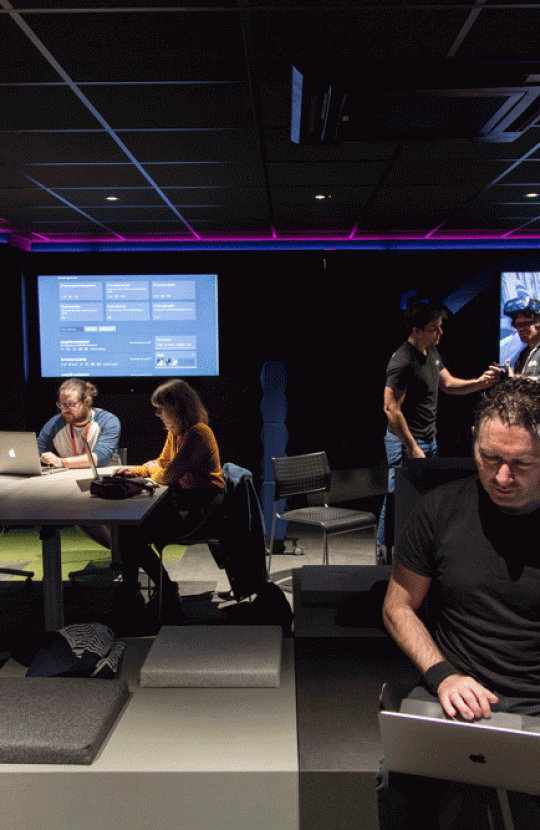
Virtual tour
Discover where you’ll spend your time as a student with our 360° tour, showcasing our facilities, accommodation, town and scenery.
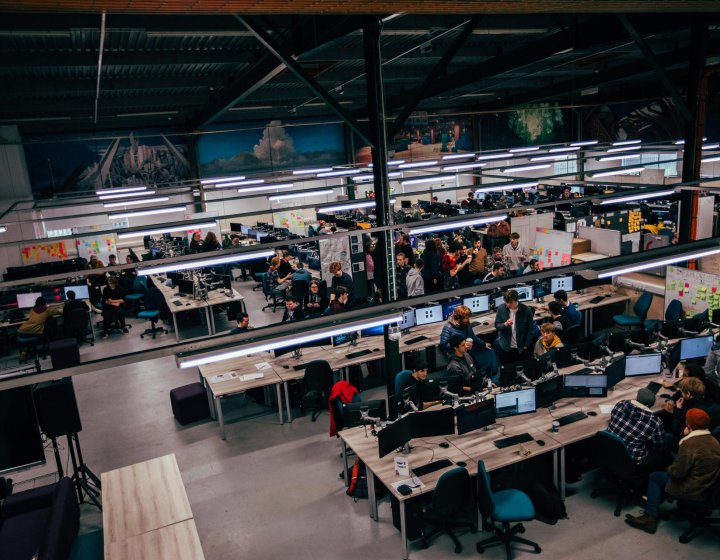
Games Academy Facilities
Our Games Academy offers professional-standard studios, a dedicated craft room, breakout spaces, and...
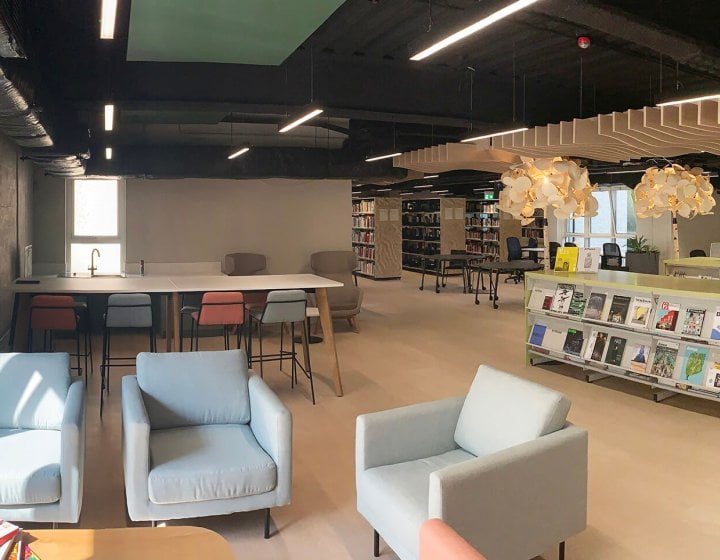
Library Facilities
Offering extensive collections, our two libraries provide a wealth of digital resources, magazines, ...

Sports Centre
Our Sports Centre, on Penryn Campus, includes a spacious gym with up to 90 of the latest, new statio...
Staff
You’ll be taught by computing professionals working in fields such as games, graphics and visual effects, web development, immersive technology, robotics, user research, data science, cloud computing, and artificial intelligence.
Some members of staff only teach on specific modules, and your course might not feature every staff member who teaches on the course.
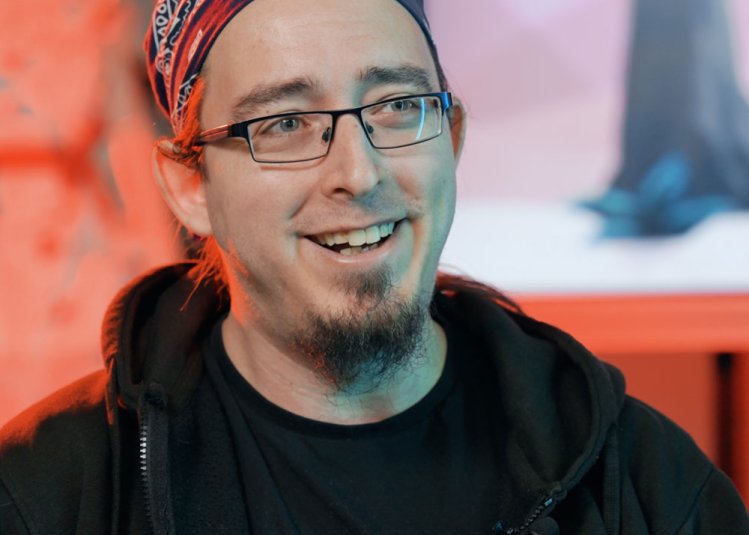
Dr Michael Scott
Head of Computing and Associate Professor of Computer Science Education
Dr Michael Scott is the Head of Computing and Associate Professor of Computer Science Educ...
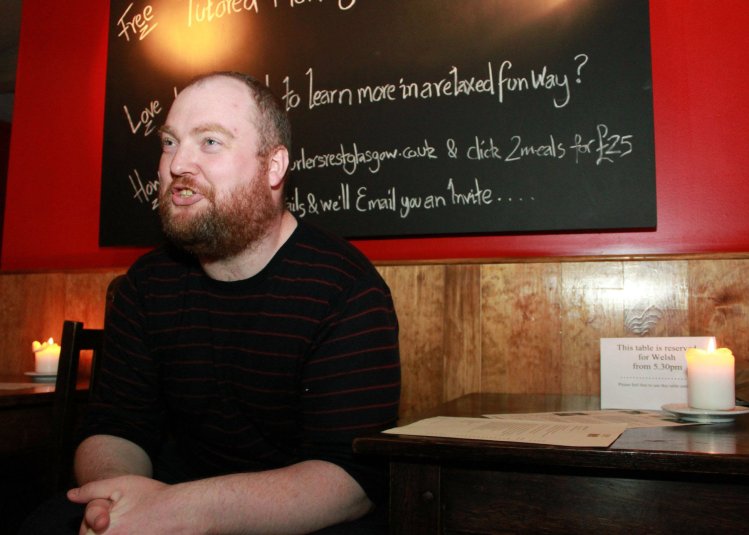
Brian McDonald
Head of Games & Head of Games Incubation
Brian McDonald is Head of Games and the Games Incubator Programme at Falmouth University. Brian h...

Andy Smith
Technical Manager/Technical Tutor
Andy joined Falmouth University in 2013 after completing his undergraduate studies in Communication ...
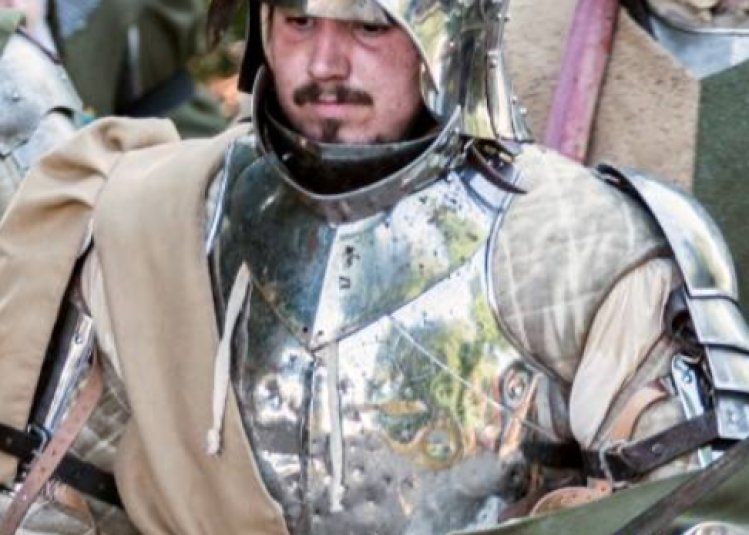
Dr John Speakman
Lecturer
Dr John Speakman is a Lecturer with the Games Academy. He joined Falmouth University in May 2016, to...
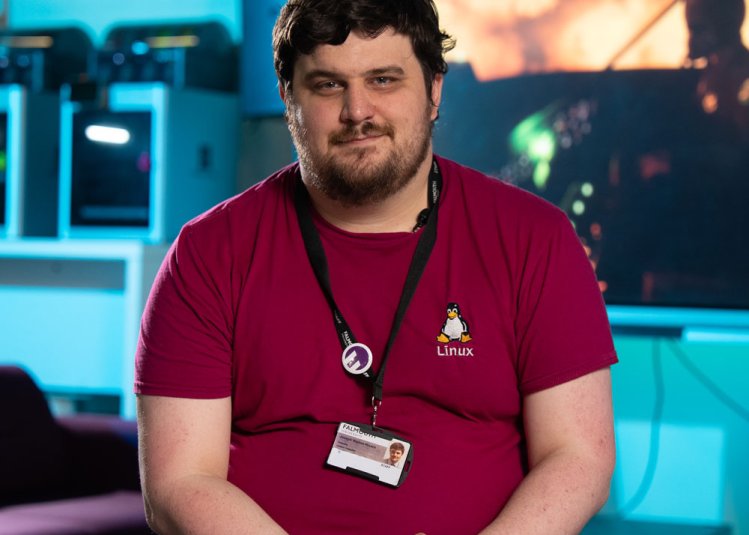
Dr Joseph Walton-Rivers
Course Leader: Computing
Joseph Walton-Rivers is the Course Leader for Computing within the Games Academy. He joined the univ...
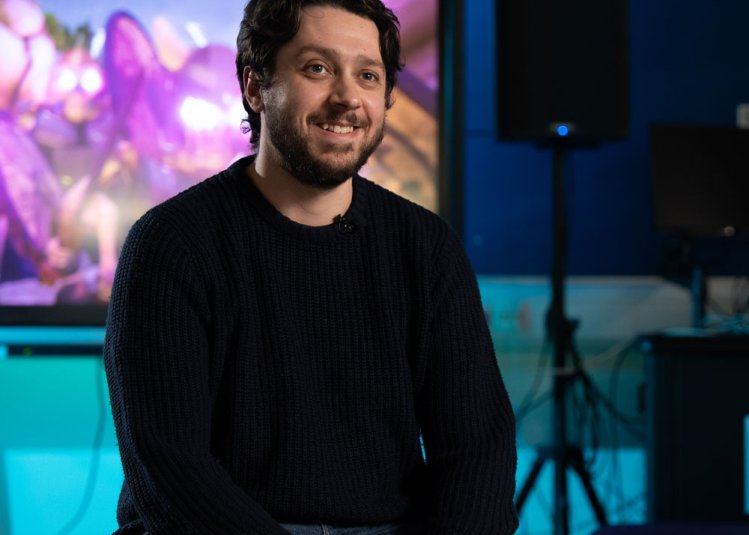
Warwick New
Associate Lecturer
I’m an Associate Lecturer of Computing, with an academic focus on web development, supporting addi...
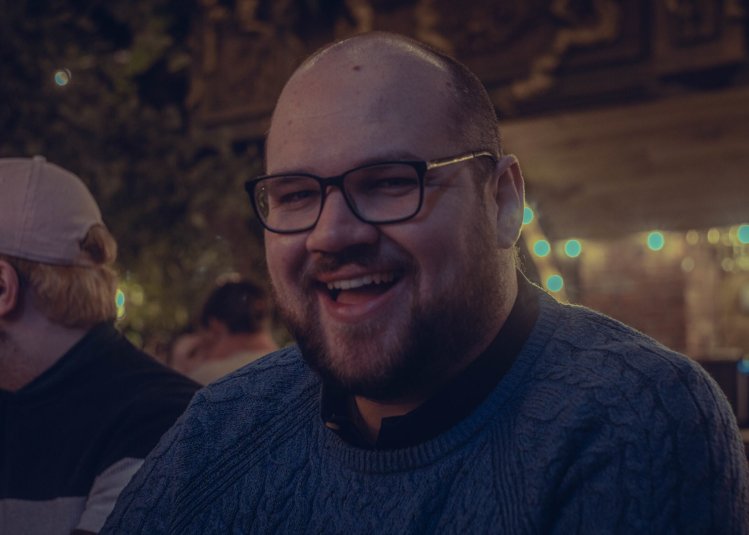
Archie Andrews
Senior Technician, Games Academy
Archie is a Games Engine and Version Control Technician. He studied Games Development Programming an...

Louise Crouch
Senior Technician, Games Academy
Louise graduated from Falmouth University in 2022 with a Masters degree in Game Art. She has develop...
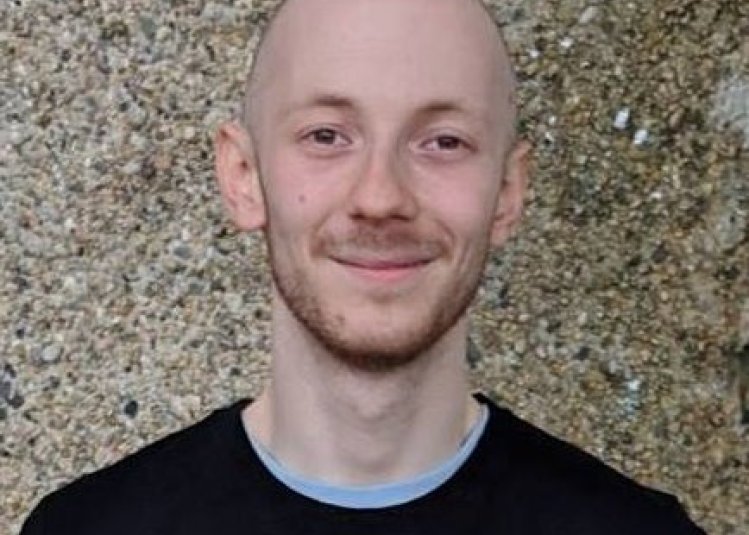
Alexander Mitchell
Lecturer, Computing
Alexander Mitchell is a member of the academic staff at Falmouth University and a doctoral candidate...

Byron Crowhurst
Senior Technician
Byron Crowhurst is a Senior Technician at the Games Academy at Falmouth University. Byron began work...
Careers
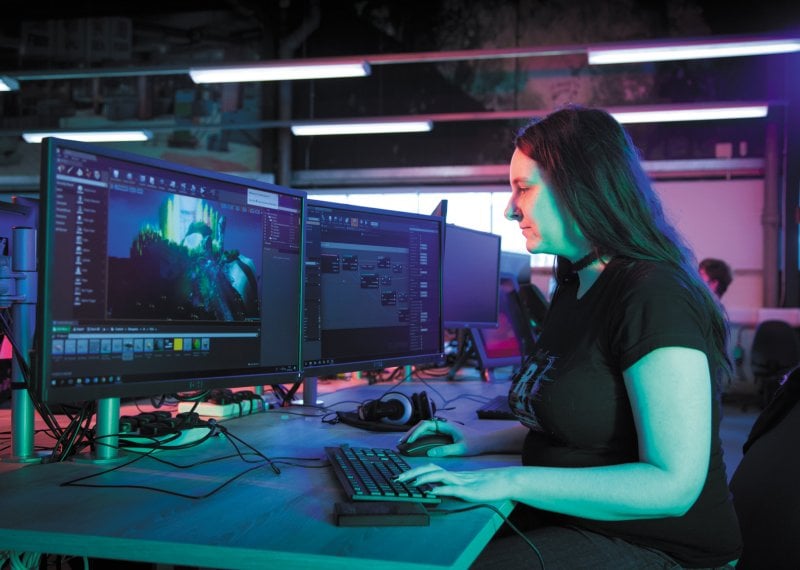
Gaming is the fastest-growing form of entertainment globally, with over 2.5 billion video gamers around the world.
Our graduates have worked as:
- Graduate Game Programmer at Firesprite
- Associate Programmer at d3t
- Tools Software Engineer at Ballistic Moon
- Gameplay Programmer at Mediatonic
- Games Programmer at Ubisoft
- Junior Programmer at Critical Failure
- Data Management Lead at Pineapple Studios
- Unity Developer at SG Gaming
- Python Automation Engineer at Imagination Technologies
Games Academy graduates have developed their own indie games, including Polargryph’s Soria, Studio Mutiny’s Sai, Knights of Borria’s Rustbreaker and Meteorite Media’s Kaya’s Vale.
How to apply
Ready to apply for 2026?
You can apply for our undergraduate degrees via UCAS. You'll need our university UCAS code (F33) as well as your course code (which you'll find on your course page) for your application.
Applying as an international student?
There are a number of different ways to apply to study at Falmouth as an international student. Find out how you can become part of our creative community.
| Course route | UCAS code |
|---|---|
| Computing for Games BSc(Hons) three year degree | I610 |
| Computing for Games BSc(Hons) with Integrated Foundation Year | FY03 |
| Computing for Games BSc(Hons) with professional placement | PY25 |

Application advice & interview information
Go to ToolkitFor starting your studies in 2026
UK applications: 14 January 2026 (for equal consideration)
Applications after the 14 January will be considered on a first-come, first-served as long as there are places available. Apply for this course now.
For starting your studies in 2027
UK applications: 13 January 2027 (for equal consideration)
International fee payers
International fee payers can apply throughout the year. But we recommend applying as early as possible, to make time for visa and travel arrangements.
We consider all applications on their own individual merit and potential.
Our diverse community is creative, innovative and entrepreneurial. We recognise that these qualities aren’t always shown in academic grades alone. That’s why, while many of our applicants achieve high academic grades, we also welcome those who can demonstrate their potential through an interview.
We welcome applications from all subject backgrounds, whether you’ve specialised in STEM, the arts or humanities. Find out more about our Entry Requirements here.
Course routes & entry requirements
BSc(Hons) three year degree
- Minimum 96 UCAS Tariff points
- GCSE Mathematics Grade 4 (C)
BSc(Hons) four year degree with professional placement
- Minimum 96 UCAS Tariff points
- GCSE Mathematics Grade 4 (C)
BSc(Hons) four year degree with Integrated Foundation Year
- Minimum 64 UCAS Tariff points
At Falmouth, we'll consider the equivalency of your specific qualifications against our entry requirements and support you through your application journey.
View our International Entry Requirements
Language requirements
For applicants whose first language is English we require you to have or be working towards GCSE English Language Grade 4 (C), or equivalent.
If English is not your first language you will need to meet the same standard which is equivalent to the IELTS Academic 6.0 overall score, with at least 5.5 in Reading, Writing, Speaking and Listening. We accept a range of in country equivalencies and approved tests.
If you need a student visa to study in the UK, you may need to take a recognised language test. You can read our English Language Requirements for more information.
Fees, costs & funding
Tuition fees
| Annual tuition fee | Student |
|---|---|
| £9,790 per year | Full-time UK |
| £19,950 per year | Full-time EU/international |
| £1,955 per professional placement year | Full-time UK and EU/international |
| £9,790 per Integrated Foundation Year | Full-time UK |
| £19,950 per Integrated Foundation Year | Full-time EU/international |
| Annual tuition fee | Student |
|---|---|
| £9,535 per year | Full-time UK |
| £17,950 per year | Full-time EU/international |
| £1,905 per professional placement year | Full-time UK and EU/international |
| £9,535 per Integrated Foundation Year | Full-time UK |
| £17,950 per Integrated Foundation Year | Full-time EU/international |
Tuition fees for September 2027 will be confirmed in summer 2026.
Tuition fees are set annually and are subject to review each year. The University may therefore raise tuition fees in the second or subsequent years of a course, in line with inflation and/or the maximum permitted by law or Government policy. Students will be notified of any changes as soon as possible.
The figures above don't include accommodation and living costs
Typical course costs
- £40 - Consumable electronics
- £30-£150 - Headset with microphone
- £25-£100 - Webcam
- £1,500 - Laptop or desktop capable of running appropriate software
If you need to bring equipment or materials with you, these will be outlined in your Welcome Letter
Course equipment and costs
You will need access to your own private personal computer to be able to put in the computer programming practice that is needed to become a computing professional. A suitable personal computer for this course will likely cost around £1,500. The latest advice about which computers we recommend you buy for your course is available here: link.falmouth.games/computer-advice
You will also have access to machines with a very high specification in our studios where you’ll be expected to do most of your work. It is important that you have a reliable internet connection, as some materials are made available to you through our virtual learning environment. We recommend a fibre broadband connection if available, but a minimum of at least 5Mbps will be suitable for livestreaming content.
Consumable electronics
You must reserve a budget of at least £40 to purchase additional materials and electronic components for your individual creative computing project.
Headset with Microphone
You will need a headset with a microphone for some classes. We recommend purchasing a high-quality headset for your comfort. Manufacturers such as Sennheiser, Razer, HyperX and Corsair are rated highly by our current students. These can cost between £30 - £150.
Webcam
You will need a webcam in some teaching. Manufacturers such as Logitech, Microsoft, and Razer are rated highly by our current students. These can cost between £25 - £100. If you have further questions, need more detailed advice or would like us to check the suitability of a particular model, then please email games.support@falmouth.ac.uk
Additional typical course costs for Integrated Foundation Year pathway
- £250 for materials
- A laptop/desktop computer
- Adobe Creative Suite
To engage in the digital learning activity, although you will be able to access IT suites on campus, you will benefit from a laptop to access the platforms and tools we use. Depending on your subject, you may need a specific type of computer. If you're unsure about what you might need, please contact our course advisors.
Course equipment and costs
- Computer - £1500
- Headset - £30-£150
- Webcam - £25-£100
Funding
For information about funding available, please visit our student funding pages.
Ask a student
What better way to find out about life at Falmouth University than by asking our current students?
From course details and academic support, to the social scene and settling in, our students are ready and available to answer any questions you might have. Simply set up your account, send them a question and they'll get back to you within 24 hours.
Similar courses
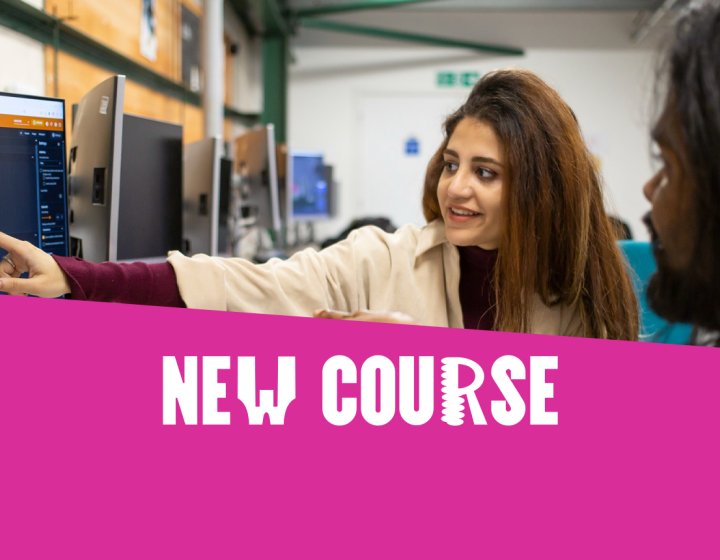
Artificial Intelligence BSc(Hons)
Artificial intelligence is transforming every corner of our world: from cars that drive themselves t...
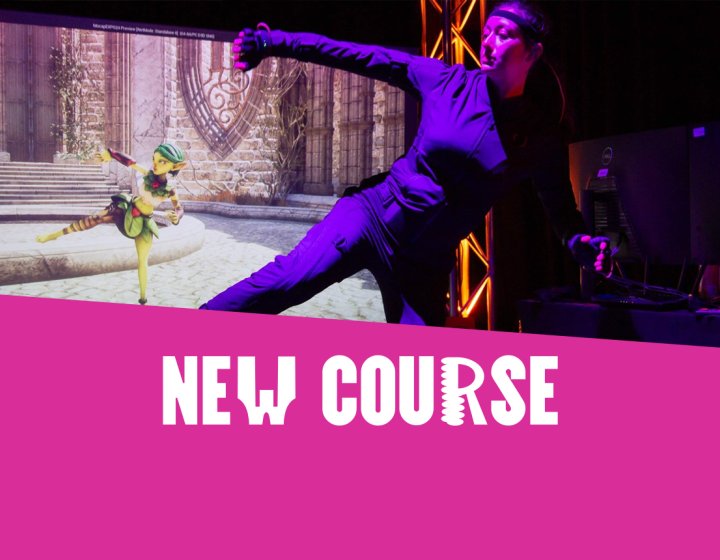
Creative Computing BSc(Hons)/BA(Hons)
Work across creative disciplines to explore creative coding, interactive systems, digital storytelli...
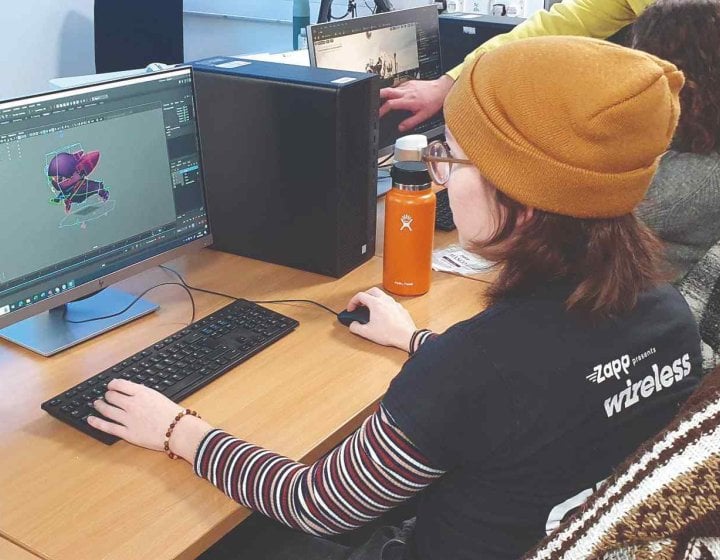
Game Animation BA(Hons)
Gain experience of working to a real-time animation pipeline and graduate with a rich portfolio of w...
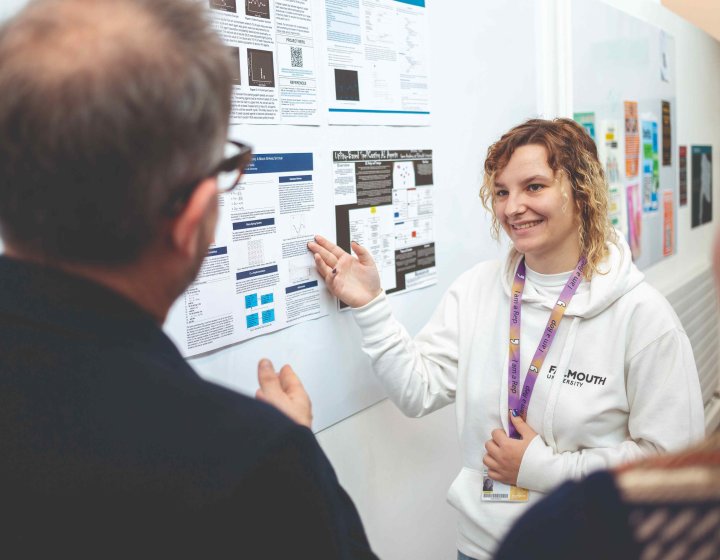
Computer Science BSc(Hons)
New immersive realities, data-rich interactions, automations and ever-more ubiquitous systems are sh...
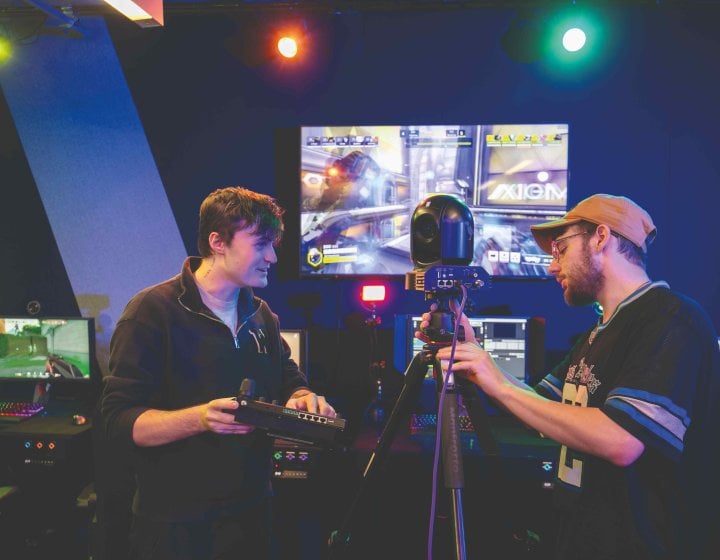
Esports & Livestreaming BA(Hons)
Immerse yourself in Esports culture on this degree, which offers a unique opportunity to be at the f...
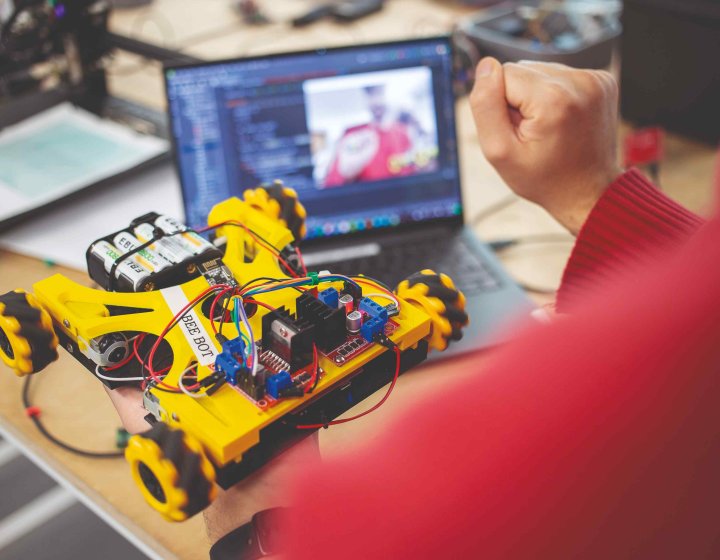
Robotics BSc(Hons)
Explore the world of artificial intelligence and create interactive robots that respond to the chall...
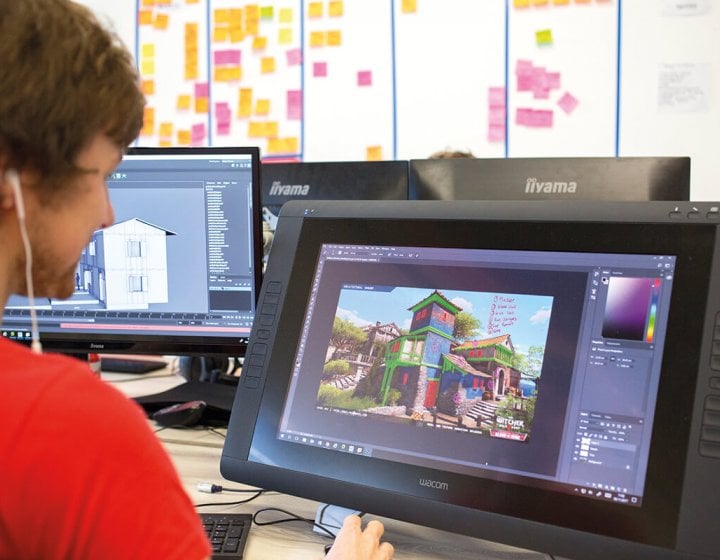
Game Development BA(Hons)
Join a community of people who have a passion for games. From day one, you’ll work as you would wi...
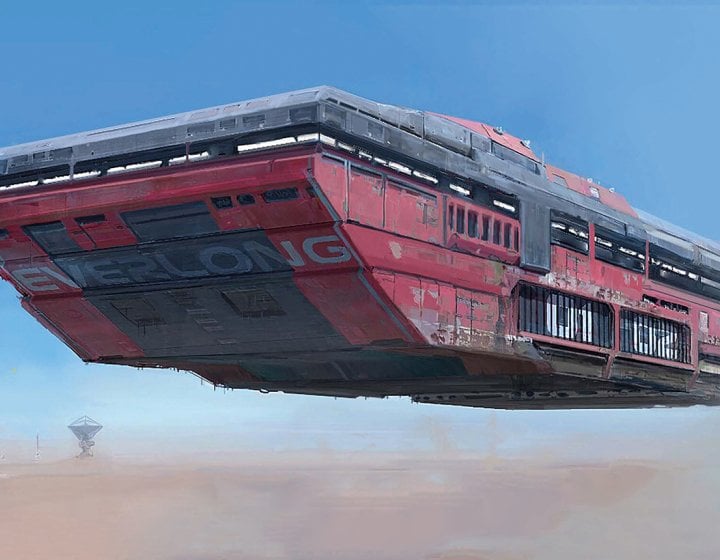
Game Art BA(Hons)
Work in multi-skilled collaborative teams and graduate as a confident, industry-ready game artist. ...
Open Days and events
From visiting campus to online application advice, get all the information you need about joining our creative community.
Find an event
